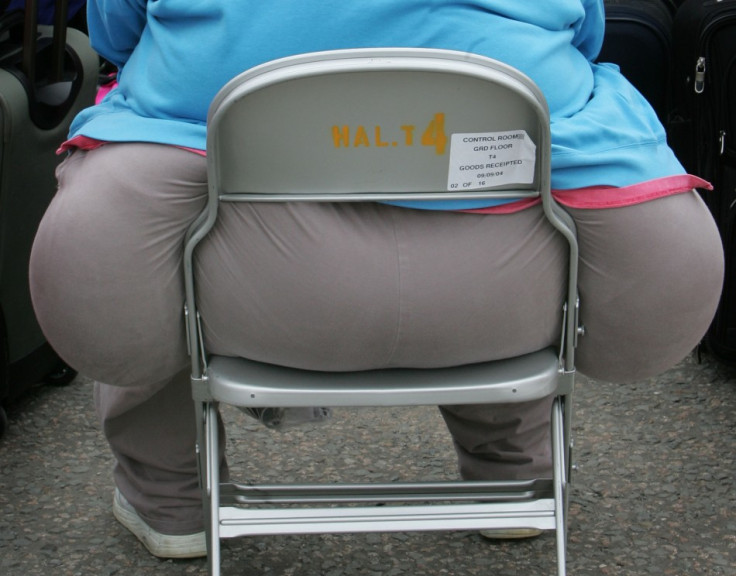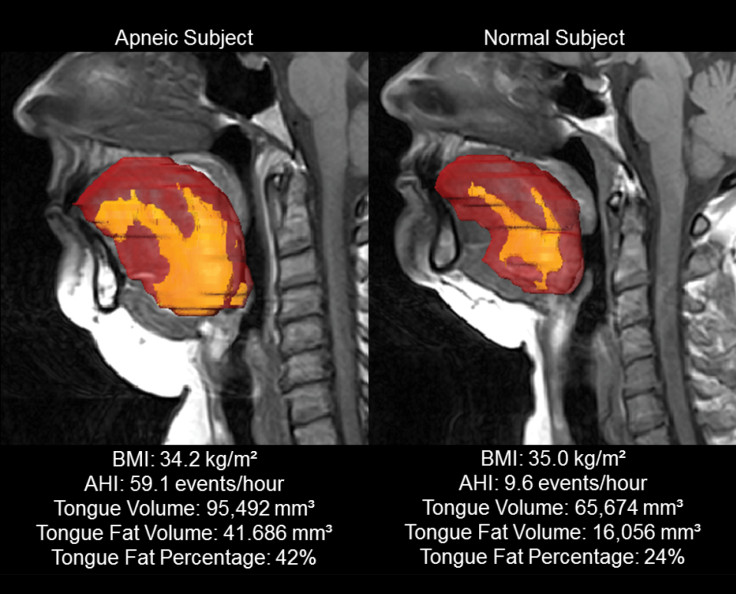Obese Adults With Fat Tongues 'More Likely to Develop Sleep Apnoea'

Obese people with large tongues are more likely to develop sleep apnoea, researchers have found.
The presence of a significantly larger tongue has been linked to obese patients with obstructive sleep apnoea and researchers have suggested tongue "liposuction" as a possible treatment.
A study by the American Academy of Sleep Medicine (AASM), found obese patients with sleep apnoea had larger tongue volumes, tongue fat and tongue fat percentages, than the obese patients without sleep apnoea.
The tongue fat percentage was also site specific, with there being more fat located towards the base of the tongue.
"This is the first study to show that fat deposits are increased in the tongue of obese patients with obstructive sleep apnoea," said principal investigator, Dr Richard J Schwab. "This work provides evidence of a novel pathogenic mechanism explaining the relationship between obstructive sleep apnoea and obesity."
The researchers said increased fat could also hinder the muscles that attach the tongue to the bone, resulting in the muscles not being able to keep the tongue from blocking the airway.
The study focused on 90 obese adults with sleep apnoea and 31 obese controls who did not.
All the participants had high-resolution magnetic resonance imaging (MRI) to detect the size and distribution of fat deposits in their upper airways.

Obstructive sleep apnoea is a condition where normal breathing is interrupted, as the walls of the throat relax and narrow during sleep. It can lead to high blood pressure, heart problems and strokes, due to sudden drops in blood oxygen.
Sleep apnoea has been linked to drinking alcohol, smoking, taking sedatives and obesity.
Common warning signs of the condition are snoring, choking, gasping and silent pauses between breaths during sleep.
The authors are urging future studies of the effectiveness of removing tongue fat via upper airway exercises, surgery and weight loss, as a treatment for the condition.
"Tongue size is one of the physical features that should be evaluated by a physician when screening obese patients to determine their risk for obstructive sleep apnoea," said AASM president Dr Timothy Morgenthaler.
"Effective identification and treatment of sleep apnoea is essential to optimally manage other conditions associated with this chronic disease, including high blood pressure, heart disease, Type 2 diabetes, stroke and depression."
© Copyright IBTimes 2025. All rights reserved.





















